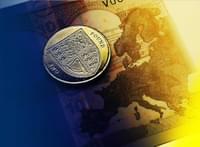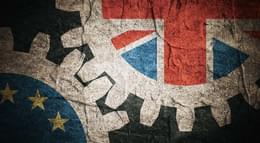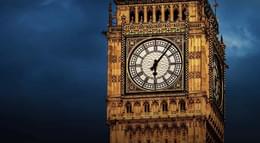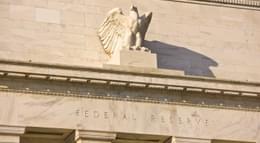
Brexonomics: the power of unilateral free trade
Edward Cree discusses the economics of Brexit and the power of unilateral free trade.
There is a saying among economists, popularised by Alan Blinder, which runs: "Economists have the least influence on policy where they know the most and are most agreed; they have the most influence on policy where they know the least and disagree most vehemently." The classic example of this is in the theory of tariffs: economists near-universally agree that, while there are a few theoretical and extreme cases (such as monopsony power) in which import tariffs can benefit a nation, their usual result is to reduce its wealth, since the tariff is chiefly paid, not by foreign exporters, but by domestic consumers — and is thus a tax (and, for reasons I won't go into, an inefficient tax at that!) which takes from the many and gives to the few. Those economists working on Public Choice Theory (the branch of study which takes the incentives-based analysis normally applied to the market and applies it instead to the behaviour of government actors) go further, and show that there are reasons to believe that if a government is given the power to levy tariffs, it will certainly not restrict their use to those cases where a tariff is beneficial — indeed it will almost surely not deploy them in such cases — but rather it will use tariff "protection" as a favour which it can grant to politically influential industrial interests in exchange for their support. Not only will this subject consumers to a wide array of inefficient tariffs (and thus high prices), it also ensures that industrial interests will expend a great deal of effort in lobbying to be one of the lucky recipients — a phenomenon known to economists as 'rent-seeking' — which destroys even more value.
It is for the above reasons that economists as a whole are strongly in favour of unilateral free trade: the policy of removing one's own tariffs, regardless of whether other nations decide to reciprocate. For, just as it is primarily we who pay the cost of our tariffs, it is upon them that theirs chiefly fall. Outside of the economics profession, this view is much rarer, which I attribute mainly to the sheer unintuitiveness of most economic results and the near-total absence of economic foundations from the standard school curriculum; but for all that Brexiteers are supposed to have "had enough of experts", I believe this set of experts are genuinely expert and should be heeded.
If we accept the economists' view of trade and tariffs, then, we find a number of implications for Brexit policy. Firstly, we should not fear the trade consequences of a No Deal ("clean") Brexit, for the tariffs the EU would impose as a result would primarily harm them, while the effect on us would be at most incidental. (After all, if world prices were not, in the absence of EU tariffs, cheaper than EU prices, the EU would not bother with 'protective' tariffs in the first place.) Secondly, that having regained (either by a clean break, or through a negotiated agreement) control of our own trade policy, we should proceed to abolish all UK tariffs, even on goods and services for which domestic producers exist. In the long run, this is an unambiguous improvement: if a firm is forced out of business by foreign competition, the labour (and other resources) freed up will move into a field in which we have a comparative advantage, generally creating higher-value (and thus higher-paid) jobs. (My favourite illustration of comparative advantage is the "Iowa Car Crop" argument by David Friedman, which demonstrates that tariffs not only harm consumers of the taxed good, but also producers of other goods for whom export demand is reduced.)
Of course there will be short-term disruption, as people who have invested in skills which are no longer profitable face the need to retrain. Leaving aside that it is an error to focus only on these job losses and ignore (say) those due to technological change (just think how many travel agents' jobs were destroyed by the Internet) and to therefore think that the disruption would be excessively large compared to the normal churning of a dynamic economy, there are a number of ways in which these people's losses (and they are real!) can be ameliorated. The most obvious is that a clean break immediately saves us £39bn as well as future annual contributions to the EU, and that at least some of that money can be spent on schemes to help those affected. Perhaps less obvious is that the economic growth that will come from free trade will increase tax revenues, another source of money to spend on relief.
Another factor is the timescale of the changes. For businesses — and employees — which can rapidly change tack, the tariffs could be dropped as soon as we leave, whereas farmers, for instance, may have a crop that is not due to harvest until the summer, so to avoid causing them serious hardship the food tariffs could be retained for a few months — but their scheduled abolition announced immediately, so that farmers can make the right choice about what to plant for next year. (Even this may not be necessary, as farmers sometimes sell their crops on the futures market long before they are harvested, in which case the loss would be borne not by the farmers but by futures traders who may not even be UK-based.) There may be some industries with even longer lead-times, but the important thing is, even when the implementation of unilateral free trade is delayed, to announce it as soon as possible so that businesses' plans can be revised. And of course the tariffs in all cases can immediately be lowered at least to the point where rest-of-world goods are competitive with the previous tariff-free price of EU goods, since our producers were already competing with the latter.
It may seem odd that I am claiming to have the science of economics on my side, when so many of those spreading Project Fear are billed as 'economists'. But in many cases they are not speaking as scientists, impartially informing the public of what is known; instead they are acting first and foremost in the interests of the organisations that hire or fund them (the CBI is the obvious example) and are thus more in the rôle of PR men than economists. (This ties in with what I was saying earlier about 'experts'; it is self-serving and self-declared experts of whom we are sick and tired.)
The final question is, if the superiority of free trade is so clearly established, why do governments (with such honourable exceptions as Liam Fox) not embrace it? Part of the answer comes from the public-choice theory considerations I mentioned earlier — protectionism gives the government tools to reward supporters and punish opponents in ways that are at least slightly better disguised than delivering suitcases full of banknotes. But part of it comes from the willingness of electorates to vote for it, because, never having been taught the simple economics of trade (which can be explained without elaborate mathematics — Ricardo discovered his Law of Comparative Advantage with nothing more than basic arithmetic), they are easily drawn in by the sophistry of protectionists and their mercantilist fallacies. So my advice to readers is first to learn the principles of microeconomics (I recommend Friedman's text Price Theory as a highly accessible introduction), and then to attempt to spread your new-found knowledge to others. Perhaps if enough of us understand economics (which has applications far beyond "money" and "jobs" and other such conventionally 'economic' subjects), we will stop electing politicians who keep selling us out — and someday, maybe, even find ways of doing without politicians altogether (but that is a story for another time!).









